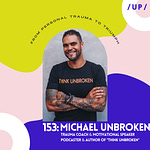Jemma-Tiffany is a 17-year-old writer, passionate patient advocate, and founder of Hyperacusis Awareness. Having grown up with severe hyperacusis (a rare and poorly-understood disorder that causes her to experience physical pain from everyday sounds) has motivated her to raise awareness of others with similar conditions. Through her various efforts, Jemma has gained experience in patient advocacy and legislative change campaigning, and has been able to participate in numerous awareness-raising events. The goal of her work is to create a world in which those with hyperacusis, chronic pain, and rare disease are believed — and are offered all the unique environmental modifications and services they need to live pain-free, comfortable lives. Her current advocacy projects include: adding a title 6 (Telepresence and High-Level Sensory Modifications) to the ADA; collaborating with research scientists and the American Academy of Audiology to establish clinical practice guidelines to protect those with hyperacusis; establishing a national awareness week for the condition; and a recent Hyperacusis Awareness Conference; as well as a campaign to extend distance-based learning (implemented during the COVID-19 pandemic) for disabled students in need. Jemma-Tiffany has been featured and published by Migraine Magic, PatientDX, the Hearing Health Foundation, the American Chronic Pain Association, Rare Youth Revolution, and The Third Estate, among others.
Tune in as Jemma-Tiffany shares:
that she was born with cataracts, and is low vision/legally blind
that she didn’t start experiencing issues with sound until she was about six years old
that she was initially diagnosed with chronic migraine, but was eventually diagnosed with hyperacusis
that hyperacusis was originally thought to be a psychosomatic condition — and as such, she has had to endure a lot of painful treatments
how diagnostics have changed in recent years, as it regards hyperacusis
that there is currently no complete treatment for hyperacusis
what hyperacusis is, and how it can affect patients differently
that the cause of hyperacusis is unknown, even in Jemma-Tiffany’s case
how she has grown into a patient advocate
how COVID has positively impacted her educational experience, enabling her to receive more supportive accommodations
why she was driven to attempt suicide
how she has been gaslighted over and over — in medical settings and beyond
how some alternative therapies have helped her (though they have not cured her of her pain): TENS and PEMF, among others
that she has been doing her own medical research since she was 11 years old, in order to present information to her doctors
what she’s working on right now
her advice for other young people living with chronic pain














Share this post